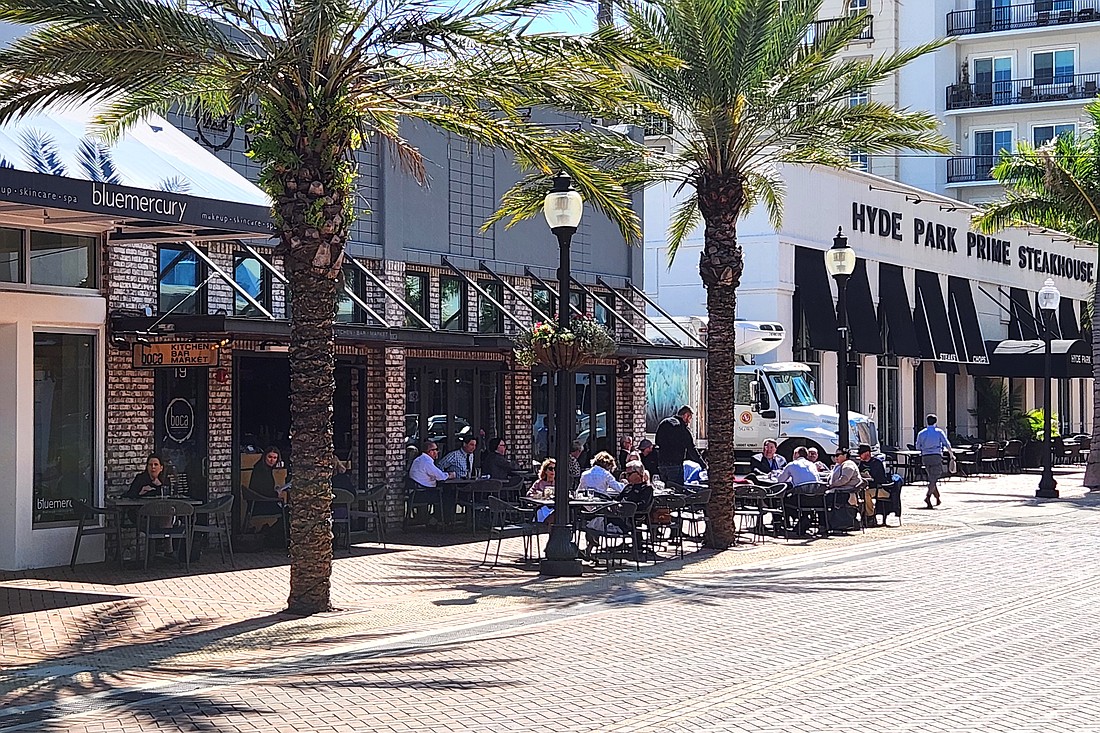- May 3, 2025
-
-
Loading

Loading

The process of simplifying the zoning code definitions of dining and drinking establishments in Sarasota was anything but, as the nearly yearlong effort left city commissioners with questions despite approving zoning text amendments Tuesday night.
During an almost four-hour special meeting following a nearly daylong regular meeting, commissioners ultimately approved, although not unanimously and not without some modification, two zoning text amendments that provide new definitions for bars, restaurants, nightclubs, bottle clubs and outdoor bars. These are aimed primarily at new establishments in downtown, but applicable citywide.
The City Commission assigned to staff the goal of removing confusion and ambiguity pertaining to definitions and standards for such establishments. Until now, the definitions have been tied to state licensing and seating requirements, resulting in some restaurants being classified as nightclubs that do not operate as such, while others are classified as restaurants despite operating as nightclubs late into the night.
By identical 4-1 votes with Vice Mayor Jen Ahearn-Koch opposed, the two-part proposal was approved. The first part defines new establishments and their approval and operations requirements. The second part describes where in the city the new definitions will be applied, as required by state statute.
The second ZTA was discussed and approved in comparatively short order to the first, once it was clarified that the downtown exemption area was not to be expanded despite Erik Arroyo's last-ditch effort to include a section of Ringling Boulevard between Main Street and Lime Avenue.
The new definitions and resulting permitting processes apply to new applications only.
Consistent with the first reading of the ordinance and a prior commission workshop, among other concerns Ahearn-Koch said there remained a lingering lack of clarity between a bar and an outdoor bar, regardless of whether it required only minor conditional use permit as an accessory use or a major conditional use permit as a standalone business.
“I'm still having a hard time with one major piece of all of this, a lot of pieces of it, but with the major piece, which is the definition or the distinction between an indoor bar and an outdoor bar,” Ahearn-Koch said. “Can you please explain to me why we're defining an indoor bar and an outdoor bar by where the drink is served and not where the activity is occurring?”
Her point, which was previously voiced echoed by some Planning Board members, was that regardless of where the serving area is located, sound emanating from an outdoor seating area can be disturbing to nearby residents. And it should not be categorized as an indoor bar just because where the drink is poured is covered by a roof but open to a patio — or in an area that can be enclosed by roll-up garage doors that do little to block sound.
A protracted back-and-forth with staff did little to dissuade her, but ultimately Arroyo’s motion to approve included changing the word “closable” to “enclosed” with regard to outdoor bars. Another change included in his motion was to amend the definition of nightclub to include “live and amplified” or “amplified” music that exceeds the decibel levels as defined in a forthcoming noise ordinance.
Other changes made by staff to the ordinances since the Dec. 5, 2023, commission workshop include:
All of that still left too much vagueness to garner Ahearn-Koch’s support, whose opposition extended into the second proposed ordinance. During the definitions portion of the hearing, she suggested a three-year sunset clause to allow time to evaluate the effectiveness of the ordinance.
"What would be the consequences of a sunset provision in, say, three years?” asked Mayor Liz Alpert.
“One of the consequences could be that this is working really well and we have to go through all this again,” replied Planning Director Steve Cover.
“I understand that, but if it's working well then it wouldn't be that big of a deal,” said Ahearn-Koch.
Planning General Manager Ryan Chapdelain replied, “It probably would be, and I would say there is the ability to amend the zoning code, sunset provision or not. I don't know if sunset provisions are good practice. I just think if it's good policy, then it's supported. If it's not, then don't support it.”